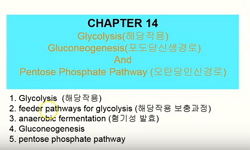This study was performed to investigate the effect of desalinated underground seawater (named as 'magma seawater', MSW) of Jeju Island in Korea on lipid metabolism and antioxidant activity. MSW was collected from underground of Han-Dong in Jeju Island...
http://chineseinput.net/에서 pinyin(병음)방식으로 중국어를 변환할 수 있습니다.
변환된 중국어를 복사하여 사용하시면 됩니다.
- 中文 을 입력하시려면 zhongwen을 입력하시고 space를누르시면됩니다.
- 北京 을 입력하시려면 beijing을 입력하시고 space를 누르시면 됩니다.



Desalinated underground seawater of Jeju Island (Korea) improves lipid metabolism in mice fed diets containing high fat and increases antioxidant potential in t-BHP treated HepG2 cells
한글로보기https://www.riss.kr/link?id=A105128748
- 저자
- 발행기관
- 학술지명
- 권호사항
-
발행연도
2010
-
작성언어
English
- 주제어
-
등재정보
SCIE,SCOPUS,KCI등재
-
자료형태
학술저널
-
수록면
3-10(8쪽)
- DOI식별코드
- 제공처
- 소장기관
-
0
상세조회 -
0
다운로드
부가정보
다국어 초록 (Multilingual Abstract)
This study was performed to investigate the effect of desalinated underground seawater (named as 'magma seawater', MSW) of Jeju Island in Korea on lipid metabolism and antioxidant activity. MSW was collected from underground of Han-Dong in Jeju Island, and freely given to high fat diet (HFD)-fed C57BL/6 mice for 10 weeks. Although there were no significant differences in the body weight changes and plasma lipid levels, hepatic triglyceride levels were significantly lower in the MSW group than in the normal tap water (TW)-drunken control group. Furthermore, the activity of fatty acid synthase (FAS) was significantly decreased and carnitine palmitoyltransferase (CPT) activity was increased in MSW group compared to TW group. Similarly, real-time PCR analysis revealed that mRNA expressions of lipogenic genes were lowered in MSW groups compared to the control group. In a morphometric observation on the liver tissue, accumulation of fats was remarkably reduced in MSW group. Meanwhile, in vitro assay, tree radical scavenging activity measured by using diphenylpicrylhydrazyl (DPPH) was increased in MSW group. The 2'-7'-dichlorofluorescein diacetate (DCF-DA) staining followed with fluorescent microscopy showed a low intensity of fluorescence in MSW-treated HepG2 cells, compared to TW-treated HepG2 cells, which indicated that the production of reactive oxygen species by tert-butyl hydroperoxide (t-BHP) in HepG2 cells was decreased by MSW treatment. The antioxidant effect of MSW on t-BHP-induced oxidative stress in HepG2 cells was supported by the increased activities of intracellular antioxidant enzymes such as catalase and glutathione reductase. From these results, we speculate that MSW has an inhibitory effect on lipogenesis in liver and might play a protective role against cell damage by t-BHP-induced oxidative stress.
동일학술지(권/호) 다른 논문
-
Soy food intake behavior by socio-demographic characteristics of Korean housewives
- 한국영양학회
- Min-June Lee
- 2008
- SCIE,SCOPUS,KCI등재
-
- 한국영양학회
- Bo-Yeon Park
- 2008
- SCIE,SCOPUS,KCI등재
-
Pancreatic lipase inhibitory activity of taraxacum officinale in vitro and in vivo
- 한국영양학회
- Jian Zhang
- 2008
- SCIE,SCOPUS,KCI등재
-
Antioxidant and antidiabetic activities of extracts from Cirsium japonicum roots
- 한국영양학회
- Jie Yin
- 2008
- SCIE,SCOPUS,KCI등재




 ScienceON
ScienceON





